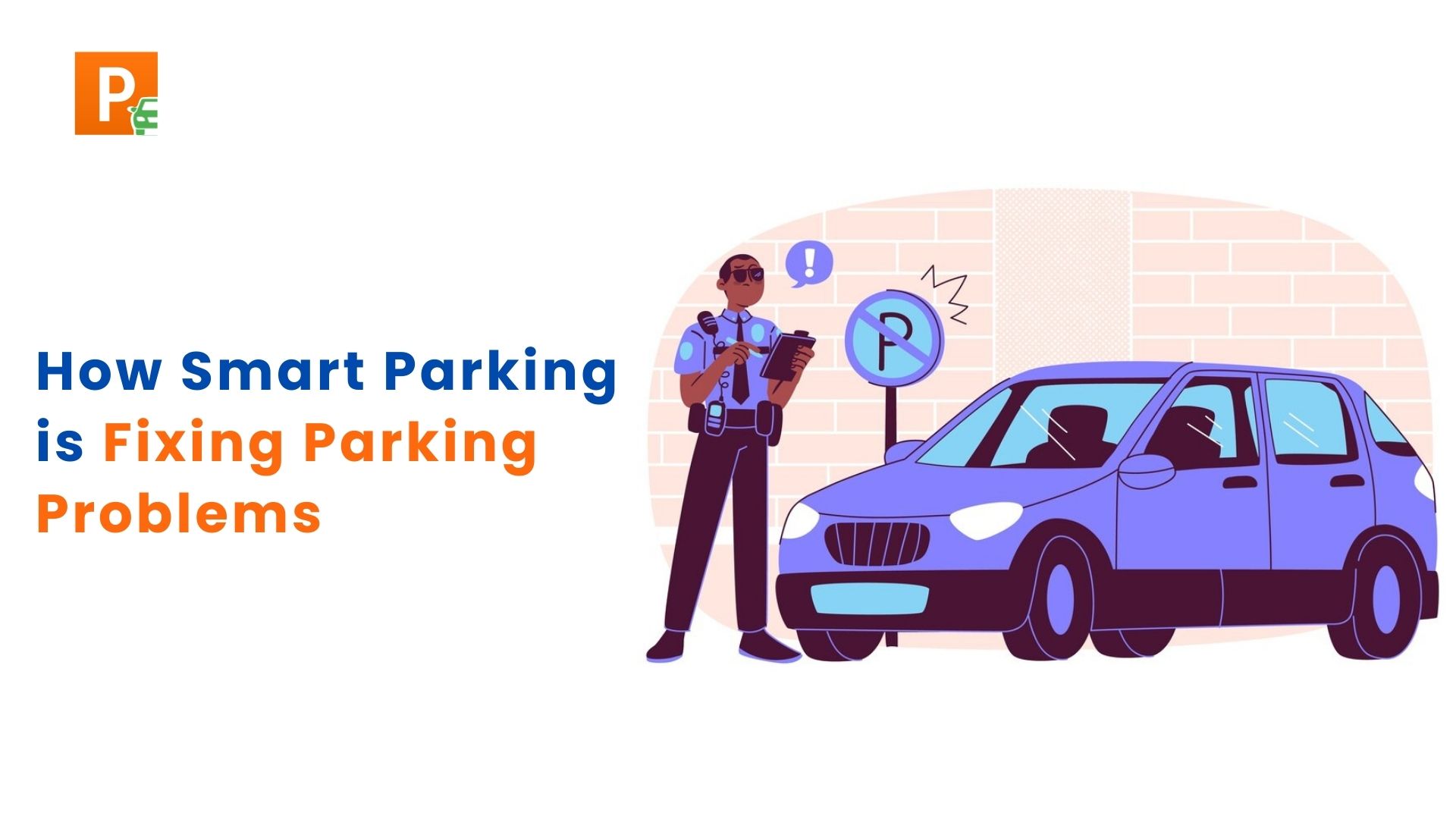Parking has always been a major concern in urban areas, leading to traffic congestion, fuel wastage, and frustration among commuters. With the rapid increase in vehicles, traditional parking systems are struggling to meet demand, making it difficult for drivers to find available parking spaces. However, smart parking solutions are emerging as an effective way to tackle these issues, transforming how people park their vehicles and how cities manage parking infrastructure.
Smart parking uses advanced technology, including sensors, artificial intelligence (AI), and mobile apps, to provide real-time data on available parking spaces. It not only enhances convenience for drivers but also reduces traffic congestion and improves urban mobility. In this blog, we will explore how smart parking is fixing parking problems and why cities are rapidly adopting this innovative solution.
The Growing Parking Problem in Cities
Parking challenges have been increasing due to urbanization and the growing number of vehicles on the road. Some of the most common parking-related problems include:
1. Limited Parking Spaces
With more vehicles on the road, the demand for parking spaces has outgrown the available supply. This leads to overcrowding in parking lots and streets.
2. Time-Consuming Parking Search
On average, drivers spend 15-30 minutes searching for a parking spot in busy city areas. This not only wastes time but also increases fuel consumption.
3. Traffic Congestion and Pollution
As drivers circle around looking for parking, they contribute to traffic congestion and air pollution. Research shows that up to 30% of urban traffic is caused by drivers searching for parking.
4. Illegal Parking and Violations
Due to the unavailability of proper parking spaces, many drivers park in unauthorized areas, leading to fines, towing, and inconvenience for pedestrians.
5. Poor Parking Space Management
Traditional parking lots often lack proper management systems, resulting in inefficient use of available parking spaces.
To address these issues, smart parking solutions are being implemented across various cities, bringing a revolution in parking management.
What is Smart Parking?
Smart parking is an advanced parking management system that integrates modern technologies such as the Internet of Things (IoT), AI, and cloud computing to optimize parking spaces. It helps drivers find available parking spots quickly and efficiently while allowing authorities to monitor and manage parking in real time.
Smart parking systems work by using:
IoT Sensors – Installed in parking spots to detect vehicle presence and provide real-time updates on available spaces.
Mobile Apps & Digital Payments – Allow drivers to find and book parking spots, make cashless payments, and receive notifications.
AI & Data Analytics – Analyze parking patterns to improve space utilization and predict future parking demands.
Automated Ticketing & Security Cameras – Enhance parking security and reduce unauthorized parking.
By leveraging these technologies, smart parking systems provide a seamless parking experience for drivers while optimizing city infrastructure.
How Smart Parking is Solving Parking Problems
1. Reduces Time Spent on Finding Parking
One of the biggest benefits of smart parking is that it significantly reduces the time drivers spend searching for parking spots. With real-time updates provided by mobile apps, drivers can instantly find the nearest available parking space, saving time and fuel.
2. Decreases Traffic Congestion
Since drivers can quickly locate parking spots, there is less need to circle around looking for space. This directly reduces unnecessary traffic congestion, making roads less crowded and smoother for everyone.
3. Lowers Fuel Consumption and Pollution
By minimizing the time spent searching for parking, smart parking systems help reduce fuel consumption and carbon emissions, making cities more environmentally friendly.
4. Enhances Parking Space Utilization
Smart parking ensures that available parking spots are efficiently used. By analyzing real-time data, city authorities can optimize space allocation and prevent underutilization of parking areas.
5. Enables Contactless and Cashless Payments
With smart parking apps, drivers can book parking spots in advance and make digital payments, eliminating the hassle of carrying cash and reducing long queues at parking booths.
6. Improves Security and Reduces Unauthorized Parking
Smart parking systems come with automated ticketing, surveillance cameras, and license plate recognition, ensuring better security. Unauthorized parking is reduced as digital records are maintained for every parked vehicle.
7. Provides Data for Future Urban Planning
By collecting real-time data on parking trends and usage patterns, smart parking systems help city planners make informed decisions for future infrastructure development. This ensures better long-term urban mobility planning.
Where is Smart Parking Being Used?
Smart parking is being implemented in various locations, including:
Shopping Malls & Commercial Complexes – To provide a hassle-free parking experience for customers.
Airports & Railway Stations – To manage high traffic and ensure smooth parking operations.
Residential Societies & Office Buildings – To offer reserved and managed parking spaces for residents and employees.
Public Parking Lots & Streets – To optimize city parking and reduce congestion.
Challenges in Implementing Smart Parking
While smart parking has numerous benefits, there are some challenges in its implementation:
High Initial Investment – Setting up smart parking infrastructure requires significant investment in technology and equipment.
Internet & Network Dependency – Smart parking solutions rely on internet connectivity, and any network issues can disrupt the system.
Public Awareness & Adoption – People need to be educated about the benefits and usage of smart parking for widespread adoption.
Despite these challenges, smart parking is proving to be a long-term solution to parking problems and is expected to become a common feature in urban planning.
Conclusion
Smart parking is revolutionizing the way cities manage parking spaces. By integrating advanced technologies, it is helping reduce traffic congestion, minimize pollution, and provide a seamless experience for drivers. As more cities adopt smart parking systems, the future of urban mobility looks promising, with efficient parking solutions benefiting both citizens and city authorities.
We specialize in developing smart parking solutions tailored to the needs of modern cities and businesses. If you are looking to implement smart parking technology, get in touch with us today to transform your parking management system.












Share this post on: